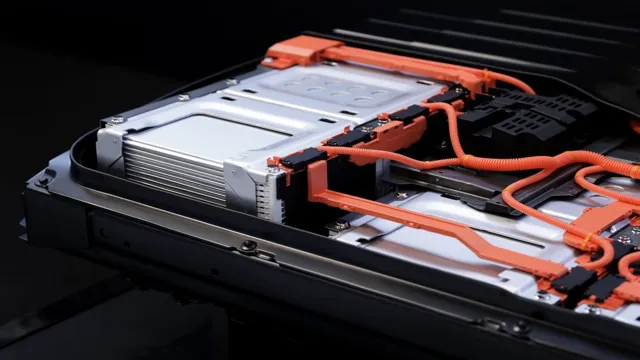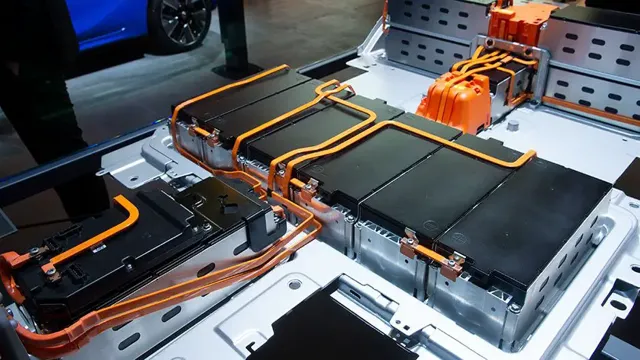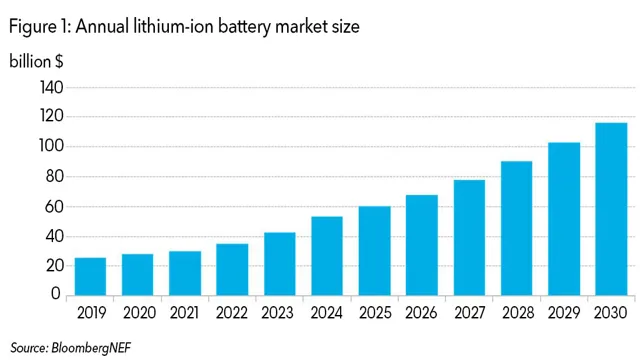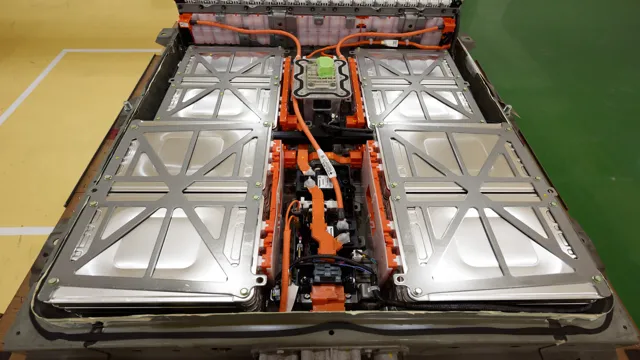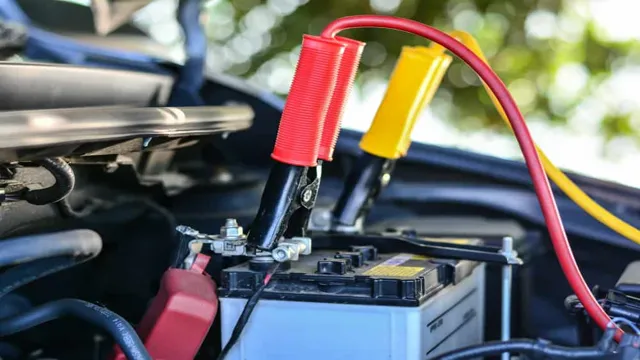Breaking Down the Truth: Do Electric Car Batteries Really Need to be Replaced?
As the world takes strides towards reducing carbon emissions, electric cars have become increasingly popular. However, just like traditional cars, electric cars’ batteries need replacement once they run their course. This raises the question of how to replace them efficiently and cost-effectively.
Electric car batteries come in different types and sizes, depending on the car’s make and manufacturer, making replacement seem like a tricky process. But it’s not as complicated as it seems. In this blog, we’ll explore what you need to know about electric car battery replacement, including the different types of batteries, when to replace them, and what factors to consider when replacing them.
Understanding Electric Car Batteries
One of the most frequently asked questions regarding electric cars is whether or not their batteries need to be replaced at some point. The answer is yes, but it largely depends on usage and how well the battery is maintained. On average, an electric car battery has a lifespan of around 8-10 years before it needs to be replaced.
However, this can vary widely depending on how often the battery is charged, the temperature it is exposed to, and how well the car is maintained. Regular maintenance is vital, as it helps to prolong the life of the battery and ensure that it operates at maximum efficiency. So if you’re considering buying an electric car, it’s essential to keep this in mind and factor in potential battery replacement costs down the line.
Lifespan of Electric Car Batteries
Electric car batteries are a crucial component of the vehicle. They are rechargeable and store the energy that powers the electric motor. The lifespan of electric car batteries can vary widely depending on various factors such as the battery chemistry, usage patterns, and temperature.
Lithium-ion batteries, which are the most common type, can last between 8 to 10 years, or around 100,000 miles, before losing their effectiveness. Factors that can affect the lifespan of an electric car battery include the number of cycles the battery undergoes, the charging time and rate, and the depth of discharge. It is important to note that the lifespan of an electric car battery is not a fixed amount of time or mileage, but it largely depends on the individual battery and its usage.
Therefore, proper maintenance and care, such as avoiding extreme temperature conditions and not letting the battery go fully empty, can help extend the lifespan of an electric car battery.
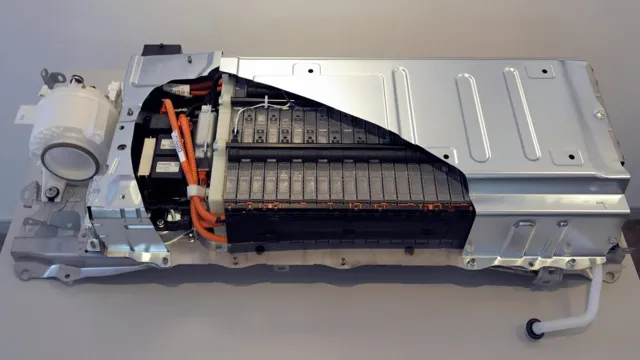
Cost of Electric Car Batteries
Electric car batteries are a crucial component of electric vehicles. These batteries come in various sizes and models, and their cost depends on numerous factors such as the type and quality of the battery, the electric car model, and the market demand. Lithium-ion batteries are the most commonly used batteries in electric cars because of their good energy density, low weight, and long lifespan.
The cost of an electric car battery has been decreasing in recent years due to the development of new battery technologies and the decreasing prices of raw materials. The battery cost also depends on the level of battery management systems integration, charging infrastructure, and the availability of recycling facilities. Due to the high cost of manufacturing, it’s generally more economical to lease an electric car battery than to purchase it outright.
However, with the advancements in technology and prices expected to drop even further, the cost of electric car batteries is likely to become more affordable in the future.
Replacing Electric Car Batteries
One question that many people have when considering an electric car is whether the battery will need to be replaced at some point. The good news is that with today’s technology, electric car batteries can last for many years before needing to be replaced. In fact, most experts believe that electric car batteries will last at least 10 years, and some can last up to 20 years or more.
However, there are some factors that can affect the lifespan of an electric car battery. For example, extreme temperatures can cause the battery to degrade more quickly, so it’s important to keep your electric car in a moderate temperature environment when possible. Additionally, heavy use or fast charging can also cause the battery to degrade more quickly, so it’s important to follow the manufacturer’s guidelines for optimal charging practices.
Ultimately, if you take good care of your electric car battery, you shouldn’t need to replace it for many years.
Signs That Your Electric Car Battery Needs Replacement
Replacing Electric Car Batteries One of the main concerns for any electric car owner is the performance and longevity of their battery. While electric car batteries are designed to last for many years, they will eventually wear out and need to be replaced. So, how do you know when it’s time to replace your electric car battery? One of the most common signs is a decrease in the car’s range.
If you find that your electric car can no longer travel as far as it used to on a single charge, it could mean that your battery is wearing out. Other signs that your battery may need to be replaced include a decrease in acceleration or power, an increase in charging times, and unusual sounds or smells coming from the battery. If you notice any of these signs, it’s essential to have your electric car battery checked by a professional.
A technician will be able to diagnose the issue and recommend the best course of action, which may include replacing your battery with a new one. With proper care and maintenance, your electric car battery can provide you with many years of reliable and efficient performance.
Where to Get Your Electric Car Battery Replaced
If you’re wondering where to get your electric car battery replaced, there are a few options available to you. Your first stop should be the dealership where you purchased your vehicle. They will be able to tell you the cost of replacing the battery and may even have a warranty or service plan that covers the replacement.
If your car’s warranty has expired, you can also check out third-party service providers specializing in electric vehicle batteries. Many of them offer competitive pricing and quality service. Additionally, some automotive stores offer battery replacement services.
It’s important to remember that the cost of replacing an electric car battery can vary depending on the make and model of the car, so it’s important to shop around and compare prices before making a final decision. By doing your research, you can find a reliable service provider who can help you get back on the road in no time.
How Long Does It Take to Replace an Electric Car Battery?
Replacing electric car batteries can take anywhere from a few hours to a few days, depending on the make and model of the vehicle and the type of battery being used. In general, most manufacturers recommend replacing the battery every five to ten years, although some newer models are designed to last even longer. When it comes to the actual process of replacing the battery, it can vary depending on the car and the battery being replaced.
Some manufacturers make it relatively easy to access and replace the battery, while others require significant disassembly in order to remove and install a new one. Overall, if you are looking to replace the battery in your electric car, it is important to work with a trusted mechanic or dealership who can help guide you through the process and ensure that the replacement is done correctly. This will help to ensure that your car continues to run smoothly and efficiently for years to come.
Maintaining Your Electric Car Battery
One may wonder if electric car batteries need to be replaced. Electric car batteries can last a long time but will eventually need to be replaced, depending on their usage and maintenance. To prolong the life of an electric car battery, it is crucial to keep the battery charged properly, avoid extreme temperatures, and avoid overcharging or undercharging the battery.
Maintaining the battery pack by following the manufacturer’s guidelines and only using charging equipment recommended by the manufacturer can help extend the life of the battery. While replacing the battery can be expensive, it is important to remember that maintenance costs are often lower than those of a gas-powered vehicle, making electric cars a more cost-effective option in the long run. So, while electric car batteries will eventually need to be replaced, proper maintenance can significantly extend their lifespan.
Tips for Extending Your Electric Car Battery’s Life
Electric Car Battery’s Life One of the biggest perks of owning an electric car is the low maintenance cost, but like all batteries, they have a limited lifespan. With a little bit of care, you can extend your electric car battery’s life and save money in the long run. The first and most important tip is to keep your battery charged between 20% and 80%.
Overcharging or deep discharging your battery can significantly reduce its lifespan. Another important factor is temperature. High temperatures can affect battery life, and extreme temperatures can damage the battery.
It’s best to avoid parking your car in direct sunlight or extreme heat for extended periods. When you’re not using your car, keeping it plugged in can help maintain the battery’s health. Finally, try to avoid fast charging unless it’s necessary.
Fast charging puts a lot of stress on the battery and can also shorten its lifespan. By following these simple tips, you can extend your electric car battery’s life and avoid expensive replacements down the road.
Charging Your Electric Car Battery Properly
Electric Car Battery Maintaining your electric car battery properly is essential for the longevity and performance of your vehicle. One of the most critical factors in maintaining an electric car battery is charging it correctly. Many people believe that they can treat their electric car battery the same way they would a traditional car battery, but this can cause damage to the battery and negatively impact its lifespan.
Charging your electric car battery too quickly, too often, or to 100% capacity can cause it to degrade faster over time. To maintain your electric car battery, it is best to charge it slowly and to only charge it to 80% capacity. Additionally, it is important to avoid leaving your electric car unplugged for long periods, as this can cause the battery to discharge completely and become damaged.
Overall, the key to maintaining your electric car battery is to charge it properly and frequently, ensuring that it stays healthy and efficient for many years to come.
Conclusion
In conclusion, the question of whether electric car batteries need to be replaced is a bit like asking whether you need to replace the battery in your phone – eventually, yes, but not necessarily anytime soon. With proper care and maintenance, electric car batteries can last for hundreds of thousands of miles, and many manufacturers offer warranties of up to 8 years or more. Plus, as technology advances and costs come down, replacing a battery may become more affordable and accessible.
So while it’s always important to understand the potential costs and limitations of any vehicle, when it comes to electric cars, the future is looking bright and the batteries are here to stay!”
FAQs
How often do electric car batteries need to be replaced?
Electric car batteries typically last around 8-10 years or 100,000-150,000 miles before needing to be replaced, but this can vary based on usage and climate.
How much does it cost to replace an electric car battery?
The cost of replacing an electric car battery can vary widely depending on the make and model of the vehicle, but can range from $3,000 to $20,000 or more.
Can electric car batteries be rebuilt or refurbished?
Yes, it is possible to rebuild or refurbish some electric car batteries instead of replacing them entirely, which can be a more cost-effective option.
How can I extend the life of my electric car battery?
To extend the life of your electric car battery, you can try to minimize extreme temperature exposure, avoid frequent fast charging, and keep the battery charged between 20-80% capacity whenever possible.
